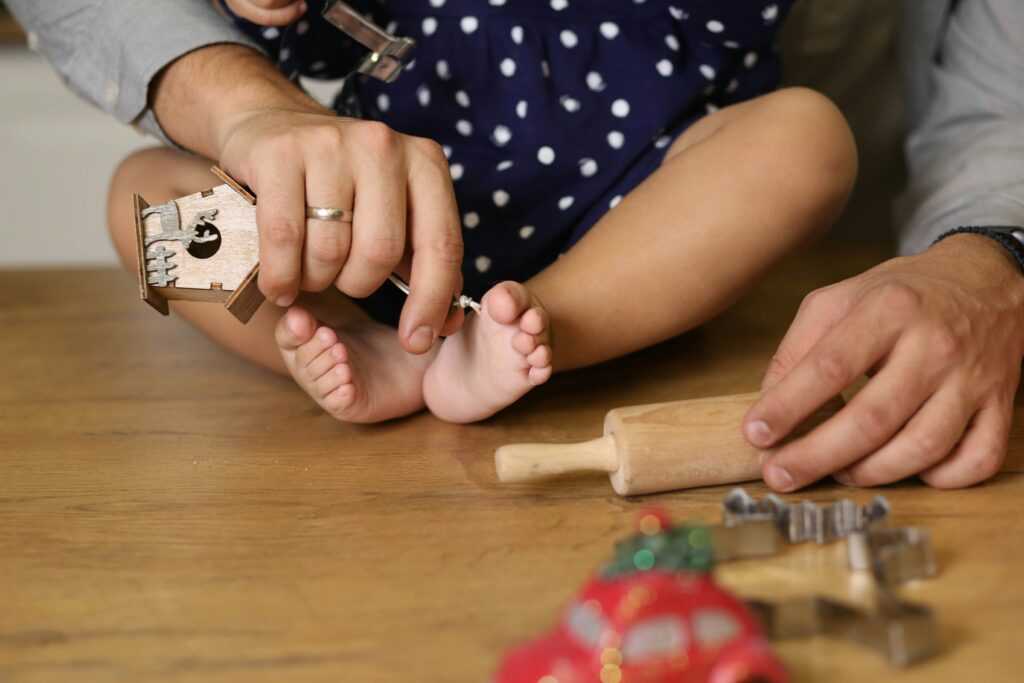Understanding Fine Motor Skills
Fine motor skills are critical for performing everyday tasks, from writing to using a computer.
Definition and Importance
Fine motor skills involve the coordination of small muscles, particularly in the hands and fingers, with the eyes.
This coordination enables tasks like picking up small objects and tying shoelaces, which are essential for daily functioning.
According to the American Occupational Therapy Association, these skills are vital for academic success and independent living.
- Hand-Eye Coordination: Integrating visual input with hand movements. Example: catching a ball or playing digital games.
- Finger Dexterity: Ability to make coordinated finger movements. Example: typing on a keyboard or pressing buttons.
- Hand Strength: Muscle power in the hands to perform tasks. Example: opening jars or manipulating objects.
- Bilateral Coordination: Using both hands together in a coordinated way. Example: cutting with scissors or buttoning a shirt.
- Manual Precision: Smooth, controlled hand and finger movements. Example: drawing or assembling small parts.
Each component is crucial for developing fine motor skills, which underpins much of our daily activity.
The Role of Video Games in Motor Skill Development
Video games significantly affect motor skill development. They improve hand-eye coordination and reaction time through engaging gameplay.
How Video Games Affect Coordination
Hand-eye coordination, essential in daily activities, improves with video games. Players must synchronize their visual and motor systems to succeed.
In rhythm games like “Dance Dance Revolution,” timing correlates with visual prompts, enhancing coordination. Studies show that consistent gaming can improve accuracy in tasks requiring hand-eye synchronization.
Video Games and Reaction Time Enhancement
Reaction time is critical in video games. Fast-paced titles like:
- Call of Duty
- Fortnite
Demand quick reflexes. Research confirms that regular gamers often react faster than non-gamers.
By processing visual information rapidly, players can make split-second decisions, sharpening their overall reflex abilities. Gaming trains the brain to respond promptly to stimuli, benefiting real-world scenarios like driving or sports.
Research Findings on Video Games and Fine Motor Skills

Extensive research shows that video games contribute significantly to fine motor skills development. Some studies support this positive impact, while others offer contrasting views.
Studies Supporting Motor Skill Improvement
Several studies highlight the benefits of video games for fine motor skills. A 2014 study published in “PLOS ONE” showed that avid gamers exhibited superior hand-eye coordination compared to non-gamers.
Participants performed tasks that required precision, and gamers consistently outperformed the control group.
Another study from the University of Toronto in 2015 found that action video games improved sensorimotor control, citing enhanced performance in gamers who played for at least ten hours per week.
Contrasting Views and Criticisms
Not all research agrees on the benefits of video games. A 2018 review in “Frontiers in Psychology” argued that excessive gaming could lead to muscle strain and joint issues, potentially offsetting any motor skill benefits.
Another study published in “Pediatrics” in 2017 raised concerns about the correlation between prolonged gaming and physical inactivity, suggesting that while motor skills might improve, overall physical health could suffer.
These findings indicate that while video games can enhance fine motor skills, moderation and a balanced approach are crucial.
Practical Applications
Practical applications of video games in developing fine motor skills extend beyond entertainment into serious, supportive contexts.
Video Games in Rehabilitation Settings
Video games assist in rehabilitation by providing engaging activities for patients. Physical therapists use specially designed games to help patients regain fine motor skills.
Stroke survivors, for example, can benefit from games that require precise hand movements. Motion-sensing technology like the Kinect enables interactive rehabilitation, promoting repetitive practice without being monotonous.
Educational Video Games and Skill Development
Educational video games target skill development, including fine motor skills. Games designed for children often require button presses, swipes, and other interactions that enhance dexterity.
These games serve dual purposes: keeping children engaged and facilitating skill development. Titles like:
- Minecraft
- Osmo
Emphasize creativity and precision, helping users develop fine motor skills while they have fun learning.

 is an experienced contributor at Play Briks Construction, where he specializes in exploring the educational potential of construction toys in early childhood development. His work emphasizes the importance of hands-on play in fostering creativity, problem-solving skills, and spatial awareness among children. Patrick is dedicated to providing parents and educators with practical insights and strategies for integrating construction play into learning environments. He also focuses on the latest trends and innovations in the toy industry, ensuring that his audience stays informed and engaged.
is an experienced contributor at Play Briks Construction, where he specializes in exploring the educational potential of construction toys in early childhood development. His work emphasizes the importance of hands-on play in fostering creativity, problem-solving skills, and spatial awareness among children. Patrick is dedicated to providing parents and educators with practical insights and strategies for integrating construction play into learning environments. He also focuses on the latest trends and innovations in the toy industry, ensuring that his audience stays informed and engaged.

